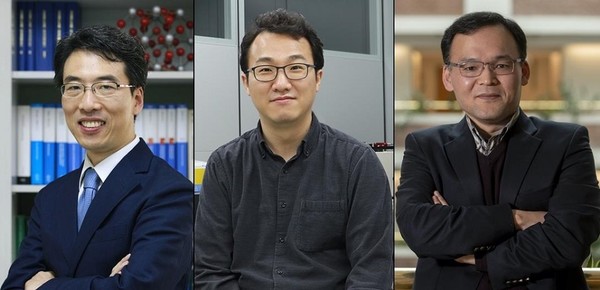The Institute for Basic Science (IBS) Nanomedicine Center said Thursday that it has developed a technology using magnetic nanoparticles to test Covid-19 infection in 17 minutes.
The IBS research team, led by Director Cheon Jin-woo and Professor Lee Jae-hyun, developed the testing method that showed similar accuracy to RT-PCR (reverse transcription-polymerase chain reaction) devices, jointly with Professor Hak-Ho Lee at Harvard Medical School.

The new method conducts Covid-19 diagnosis through reverse transcription and gene amplification using nano-PCR of ribonucleic acid (RNA) of the virus extracted from infected patients. Researchers have developed magneto-plasmonic nanoparticles (MPN) to detect the fluorescent signal of the amplified virus.
Korea has been using RT-PCR tests to check Covid-19 infection as it gives a more accurate diagnosis compared to the existing rapid antibody kits. However, RT-PCR needs more than four hours for just collecting a sample to confirm infection, slowing down the screening process, and costing more for finding patients at the frontline.
The research team came up with a way to shorten drastically the time required for gene amplification by developing MPN sizing from 30 to 40 nanometers. MPN promotes the virus's division by rapidly increasing the temperature of a solution containing viral genetic material in response to irradiated light with a certain wavelength.
Researchers reduced the gene amplification process that took more than two hours in the existing RT-PCR within five minutes.
As a result of testing the samples of 75 confirmed Covid-19 patients and another 75 people in the controlled group, the novel RT-PCR tests showed an accuracy of higher than 99 percent and a sensitivity of 3.2 copies per microliter, similar to that of the existing RT-PCR method.
"IBS has developed a PCR technology that can rapidly tell Covid-19 infections," Director Cheon said. "We expect this technology will be used not only for testing Covid-19 infection but for diagnosing other infectious diseases in the future."
Cheon added that the recent development requires follow-up studies for commercialization and actual use.

